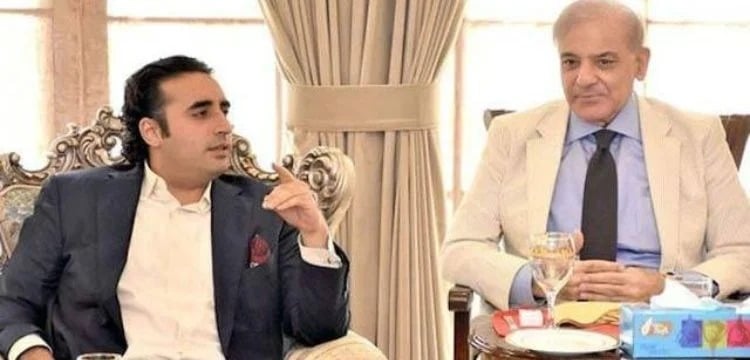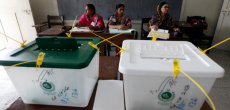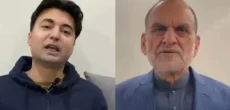[vc_row][vc_column][vc_column_text dp_text_size=”size-4″]
The Pakistan Peoples Party (PPP) has identified three potential candidates for the position of Punjab governor as part of a power-sharing arrangement with the Pakistan Muslim League-Nawaz (PML-N). The shortlisted individuals are Makhdoom Ahmed Mahmood, Qamar Zaman Kaira, and Nadeem Afzal Chan. Among them, Makhdoom Ahmed Mahmood is considered the top priority by the PPP, as he is expected to be acceptable to the PML-N, which is poised to establish the government in Punjab.
The announcement came after PPP Chairman Bilawal Bhutto Zardari revealed in a late-night press conference that Shehbaz Sharif would be the next prime minister of Pakistan, and Asif Ali Zardari would assume the presidency. Bilawal emphasized that the PPP and the PML-N have garnered sufficient numbers to form the next government.
Read more: PPP, PML-N Consensus: Shehbaz For PM, Zardari For President
The power-sharing agreement between the PPP and the PML-N was reached after days of negotiations, triggered by the absence of a single party securing a simple majority in the February 8 polls. Bilawal expressed confidence in the coalition’s ability to form a stable government, stating, “PPP and PML-N have achieved the required number, and [now] we are in a position to form the government.”
During the joint press conference at Zardari House in Islamabad, Bilawal highlighted that the candidates backed by the Pakistan Tehreek-e-Insaf (PTI) and the Sunni Ittehad Council (SIC) failed to secure a simple majority for government formation in the Centre.
PML-N President Shehbaz Sharif noted that they had given PTI-backed winning candidates the opportunity to prove their majority and form the government. However, the PTI lacked sufficient numbers to establish the government, leading to the collaborative efforts of the PPP and PML-N in the formation of a coalition government.
The development reflects the intricacies of post-election dynamics in Pakistan, where political parties engage in negotiations and alliances to create viable governing structures. The identification of potential candidates for key positions, such as the Punjab governorship, is indicative of the collaborative decision-making process between the PPP and the PML-N as they navigate the complexities of coalition governance.
[/vc_column_text][/vc_column][/vc_row]











